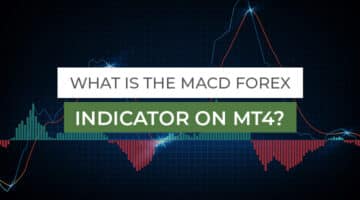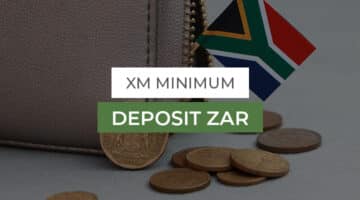What is a Forex Broker?

In this article
Do you want to know the concept of what a forex broker is? For a trader to make money in the forex market, they need a forex broker to execute their orders.
To avoid getting scammed or tricked, one should only work with traders they can trust completely. Therefore, the first step for any aspiring investor is to work with a Forex broker they feel comfortable with.
Users are expected to research options like comparing Forex brokers using review sites since this takes time and effort. However, it’s essential to work with Forex brokers because they guide you through specific deals and provide assistance, especially if you’re just getting started.
Forex brokers: what are they?
Forex brokers provide traders with a platform to buy and sell foreign currencies through financial services.
Foreign exchange is commonly referred to as the forex. Whenever you make a forex transaction, you are exchanging two different currencies. In addition to a forex broker, you can also call him a forex trader.
Understanding forex brokers
By necessity, the foreign exchange market operates worldwide 24 hours a day.
Retail currency traders use forex brokers’ platforms to speculate on currency direction. In addition to investment banks and other customers, they also cater to large financial services firms.
The entire volume of the foreign exchange market is handled by only a tiny number of brokerage companies.
G10 nations represent the majority of currencies involved in forex, or foreign exchange, trading. A forex trader’s clientele is typically currency speculators or investors from large institutions. There are many forex traders online to choose from.
Brokers’ role in the forex market
Exchanges of foreign currency usually occur between the currencies of the ten nations that are part of the G10. US dollars (USD), Euros (EUR), Pounds (GBP), Yen (JPY), Australian dollars (AUD), New Zealand dollars (NZD), and Canadian dollars (CAD) are the nations and their currencies.
Customers can often trade in currencies from emerging markets through most brokers.
A trader buys a currency pair through a forex broker and sells the same currency pair to close the trade. For example, traders interested in converting euros into dollars buy EUR/USD. It is the same as buying euros using dollars.
The trader closes the position by selling the pair, which is equivalent to purchasing dollars with euros. When the trade is closed, trading at a higher exchange rate results in a profit for the trader. Trading at a lower exchange rate results in a loss!
Where do forex brokers make their money?
There are two ways in which forex brokers are compensated. A currency pair’s bid-ask spread is the first method.
In the case of the Euro-U.S. currency pair, the price is 1.20010 bid and 1.20022 ask, with a spread of .00012, or 1.2 points. Brokers will collect the spread amount from retail clients who open positions at ask prices and later close them at bid prices.
Secondly, some brokers have additional fees. Frequently, specific software interfaces are accessed by monthly or per-transaction fees. The fees can be for access to exotic options or other unique trading products.
There are two major regulators of the forex industry: the Commodity Futures Trading Commission and the National Futures Association.
Currently, forex brokers compete fiercely for retail customers, and most firms find that removing as many fees as possible will help them attract them. As a result, many forex brokers now charge no or a minimal trading fee beyond the spread to attract retail investors.
Brokers who operate their trading operations may also make money. Customers may object to their trading practices if they create a conflict of interest. Regulations have restricted these practices.
Which forex broker should I choose?
When selecting an online broker for forex trading, consider these three factors.
- Be sure your broker has a licence and is adequately regulated. Make sure your deposit is safe.
- Comparing each broker’s account offerings, trading platforms, tools, and investment research is another good idea.
- Then read detailed forex broker reviews to compare the pricing and product offerings (e.g., the number of currency pairs and CFDs available to trade) to determine what is essential to your forex trading and investment needs.
Which forex brokers are regulated?
The perfect way to avoid forex scams is by using a well-known, properly regulated broker. The registration number for your forex broker can be found at the bottom of the broker’s homepage. If the broker is regulated, you can identify the number.
We track, rate, and rank over 20 international regulators, whose websites are here, to prove the firm’s registration number. In addition, over 20 international regulators have ranked the firms on their websites to help traders.
Be sure to do some research if the broker is not accredited in your country.
Different types of forex brokers: a quick guide
Forex brokers come in many different forms, from reputable brokerage firms to betting houses that operate illegally. Whether beginners or experts, traders must choose their brokers carefully to ensure that they are working with a trustworthy one.
These brokers’ procedures and policies vary dramatically, even though most have access to the foreign exchange market and similar qualities.
Brokers also represent different levels of the industry. Those with high levels of expertise and direct access to the market are in the minority. A few brokers are also very distant from the market and have little interaction.
The key to choosing a forex broker who can help you transform into a successful trader is researching the various types of brokers. The following are some of the unique roles and functions played by forex brokers in the market:
1. Dealing Desk (D.D.)
Market makers are referred to as this broker. Fixed spread brokers are usually dealing desk brokers. Additionally, most of them work by choosing to quote lower or higher than the market’s real-time prices.
Working with a dealing desk makes sense for new and seasoned traders who avoid trading directly with liquidity providers. Instead, brokers are usually paid via spreads.
2. No Dealing Desk (NDD)
Traders can directly access the interbank market with no dealing desk forex brokers. In addition, an NDD broker doesn’t need to requote prices. This means traders have the vast opportunity to trade without restrictions by following economic announcements.
Low and unfixed spreads are possible when working with NDD brokers. When there is an increase in volatility due to a significant economic announcement, the spreads will significantly increase in value since they are not fixed. NDD brokers may charge a commission on each forex trade or increase the spread to profit.
3. Electric Communication Network (ECN)
In these brokers’ order books, you can usually see the prices offered by different banks on the interbank market, as well as the processed orders. In addition, the players in the forex market are offered information by most ECN brokers, which contribute to improved transparency.
They earn income from working with traders by charging commissions on each traded volume. Traders can also execute all their interbank transactions with ECN brokers.
4. Straight through Processing (STP)
Trading orders can be sent directly to liquidity providers by STP brokers. Therefore, order execution is not also impacted. Most STP forex brokers have an extensive network of liquidity providers. In addition, STP brokers that provide their traders with multiple liquidity providers have a better chance of succeeding in the forex market.
For forex traders to succeed, they should pick a broker that can offer the services they need without committing fraud.
What three things a forex broker offers you?
1. Forex brokers give you leverage.
Leverage in forex trading is available with every account, and it varies between 10:1 and 100:1. An example of leverage of 10:1 is, you have $10 in your account for every $1 you have in your account.
It can be good and bad as leverage can give exponential profits and mounting losses. Generally, forex brokers consider this fine print, as the law requires. Unfortunately, traders who jump in too fast usually burn through their accounts as soon as they get excited!
2. You will have two balances.
Two balances are displayed for your account when you work and trade with a forex broker. The first balance represents your actual balance without including the open trades.
In other words, your other balance is the amount you would have if all of your trades were closed. This is known as your net balance.
3. The bid-ask spread
The broker passes the trading order onto the market for you when you open a forex trade. As a result, they offer you a price slightly below what they can get for the currency pair.
If you want to sell out the currency pair, the broker will give you 1.3600/1.3605, and if you want to buy, the broker will charge you 1.3600/1.3605, for example. The broker’s commission equals .0005, or five ‘pips.’ Trading supply and demand may cause the spread to widen or narrow.
The main difference between a bid and an offer is “collecting the spread.” The spread or commission is in many ways transparent from the trader’s perspective.
Nevertheless, it would be best if you never forgot that from a broker’s perspective, the beauty of spreads lies in the fact that they are calculated from your leveraged trade size rather than your account balance.
Why is it important to verify a broker’s reputation?
It is a broker’s job to put you in touch with the banks so that you can buy and sell currencies. There are rules and procedures they must follow.
The forex industry, however, has been unregulated for many years. However, you can still come across some forex brokerages that aren’t so reputable, even though it has dramatically improved. A broker’s reputation can be verified by checking with the NFA (www.NFA.futures.org).
If you plan to work with a broker, check first if they are regulated in the United States. A regulated broker’s website will state this information.
Forex brokers are generally regulated by various financial institutions responsible for managing the components of the financial markets. As a result, there are different sets of guidelines and rules for regulated Forex brokers worldwide, depending on where they are located.
These rules exist to protect an investor’s best interest while ensuring transparency and reliability between traders and brokers. ASIC and the Security Exchange Commission of the United States are two examples of such organisations that support these operations.
Related questions-FAQs
1. Does a forex broker charge a commission?
Each side pays $5 in commissions for every 100,000 traded. Pro-rata charges are applied to trades under and above 100,000, with a minimum charge of $0.01.
2. Is it possible to learn forex trading by myself?
An education in forex is crucial to trade successfully. To learn more about forex trading, you can use websites, books, and other resources. Experience, you may find out over time, is the best teacher. This applies to learning how to trade forex.
3. Is forex difficult?
While forex trading isn’t difficult compared to other markets, it does have its own set of conditions, risks, and behaviour that newcomers should be aware of before they invest. For example, the power of leverage can dramatically increase profits, but it is a double-edged sword.
4. What is the payment method for forex brokers?
Forex brokers charge commissions per trade or spread to execute buy and sell orders. Forex brokers earn their money this way. In addition, brokers charge spreads, which is the main difference between the bidding and asking prices. In addition to the commission, a broker could also charge a spread.
5. Do forex brokers offer free services?
Market makers who entice traders to the forex market have a unique feature that differentiates it from other exchange-driven markets. The company promises no commissions, no exchange fees, or regulatory fees.
Bottom line
Many investors are new to forex trading. Currency prices are affected by news differently from those that affect stock prices. Also, foreign exchange markets can feel uncomfortable territory for a new investor when they are learning how to value currencies and invest in them.
Many brokers have created divisions dedicated to education and research to help traders stay updated and informed every day. In addition, it will combat the lack of knowledge due to the uniqueness of the forex market.
Jason Morgan is an experienced forex analyst and writer with a deep understanding of the financial markets. With over 13+ years of industry experience, he has honed his skills in analyzing and forecasting currency movements, providing valuable insights to traders and investors.
Forex Content Writer | Market Analyst
Relevant Posts

FBS Bonus Promotion
[top_three_brokers] [single_affiliate title="" id="3177" size="big"] Did you know that for first-time customers or beginner traders,…
Read more

What is NFP in Forex?
[top_three_brokers] Non-farm Payrolls (NFP) is one of Forex's most influential market movers. In addition to…
Read more

AvaTrade Bonus Promotion
[top_three_brokers] [single_affiliate title="" id="412" size="big"] AvaTrade is currently offering welcome deposit bonuses and referral bonuses.…
Read more

What is the MACD Forex Indicator on MT4?
[top_three_brokers] Right through this guide, we will have a detailed discussion about the MACD forex…
Read more
AvaTradeGo
[top_three_brokers] In the last 15 years, the forex market has changed dramatically. Since the barriers…
Read more

Best non-repainting Forex Indicators for day trading
[top_three_brokers] Forex traders now prefer non-repainting Forex indicators for day trading to track the possible…
Read more
S and P 500
[top_three_brokers] Many people hear about the S&P 500 in the news, but few explain it…
Read more

Binary Options Trading in South Africa in 2023
Binary options, unlike forex trading, always have a predetermined end value. This means that you…
Read more

XM Minimum Deposit ZAR
[top_three_brokers] [single_affiliate title="" id="410" size="big"] Anyone looking to break into the forex trading industry should…
Read more
IC Markets Bonus Promotion
[top_three_brokers] [single_affiliate title="" id="3974" size="big"] If you are ready to open your live trading with…
Read more

FBS Bonus Promotion
[top_three_brokers] [single_affiliate title="" id="3177" size="big"] Did you know that for first-time customers or beginner traders,…

What is NFP in Forex?
[top_three_brokers] Non-farm Payrolls (NFP) is one of Forex's most influential market movers. In addition to…

AvaTrade Bonus Promotion
[top_three_brokers] [single_affiliate title="" id="412" size="big"] AvaTrade is currently offering welcome deposit bonuses and referral bonuses.…

What is the MACD Forex Indicator on MT4?
[top_three_brokers] Right through this guide, we will have a detailed discussion about the MACD forex…
AvaTradeGo
[top_three_brokers] In the last 15 years, the forex market has changed dramatically. Since the barriers…

Best non-repainting Forex Indicators for day trading
[top_three_brokers] Forex traders now prefer non-repainting Forex indicators for day trading to track the possible…
S and P 500
[top_three_brokers] Many people hear about the S&P 500 in the news, but few explain it…

Binary Options Trading in South Africa in 2023
Binary options, unlike forex trading, always have a predetermined end value. This means that you…

XM Minimum Deposit ZAR
[top_three_brokers] [single_affiliate title="" id="410" size="big"] Anyone looking to break into the forex trading industry should…
IC Markets Bonus Promotion
[top_three_brokers] [single_affiliate title="" id="3974" size="big"] If you are ready to open your live trading with…



